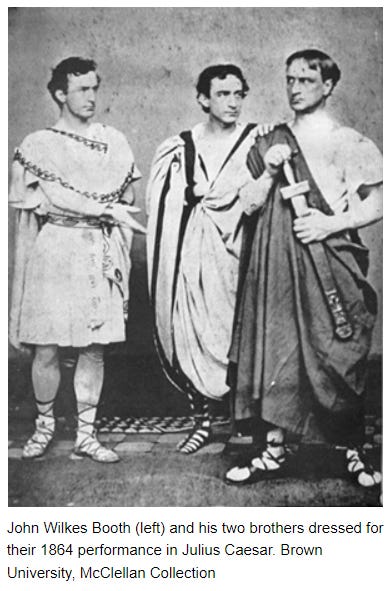
Beware the Ides of March, shrilled Soothsayer Spurinna the Etruscan in 44 BC. David Eddy’s fingers fretted forgetfully for Y2K in 2000 AD. The Celebration of Grandpa Smitty’s Life landed 02/02/02. And now we’ve escaped to 123123. Is this the dawning of our dreams? Or the nadir of our nightmares? What will we choose? Start over or go back? Is it Never Too Late or is it Too Late, Too Little.
It is said that choices define us. That may be so, but who gives us the choices? And do we know all of the choices possible? It may be that it’s actually a willingness to choose that defines us, not so much the choice. Are we willing to act upon our choice? To defend our choice? To sacrifice for our choice? To choose
Is there something to be done? Or nothing to be seen? And everything to be feared?
We love our numbers - Angel Numbers soothe our souls. 420 helps our head. 2am downs our drinks. 530 buzzes our bed. It’s five o’clock somewhere. And here in LA, we love our 210, 10, 5, 60, 110, 105, 605, 57, 134, 101, and, of course, the 405.
Care to tell me your numbers or where you ended up? Dumped on Doheny? OMG. Stuck on Cienega? Parked on Pico? Fucked on Fairfax? Hammered on Huntington? Oh well. Spend a moment in history when SNL was funny. (wistful sigh . . .)
Mensuration mandates and mathematics multiply morality, posits my old friend Jeremy Bentham of Panopticon Popularity. He surprised me yet again from the grave, as wise men often do. Best known for enforcing morality upon prisoners via constant surveillance (been there-done that), he moved on to children and factory workers. Meaning you’re next.
All in the name of “improving society”. In fact, I’ve studied and written about this curious man whose last will and testament specified that he be taxidermized and displayed at the entrance of his classroom in a glass case. My kind of guy! That death display rivals even my wish of burial at the FBI Farm. Bury me ass-up. Then get in line to kiss it.
Bentham on Mensuration: Calculation and Moral Reasoning
Michael Quinn | Utilitas 26 (1):61-104 (2014)
Abstract
This article argues that Bentham was committed to attempting to measure the outcomes of rules by calculating the values of the pains and pleasures to which they gave rise. That pleasure was preferable to pain, and greater pleasure to less, were, for Bentham, foundational premises of rationality, whilst to abjure calculation was to abjure rationality. However, Bentham knew that the experience of pleasure and pain, the entities which provided his objective moral standard, was not only subjective, and only indirectly accessible to the legislator, but also typically dependent on a complex of socially mediated beliefs and attitudes. All moral reasoning involved a process of inference from contingent which was littered with possibilities for error. The Bentham who emerges is a more vulpine hedgehog than is usually allowed, whose core insistence is that, despite its imperfections, consequentialist analysis and decision-making remains the only viable route to a rational morality
Searching for the cause of a breakdown, whether in communication or execution, begins with identifying the problem: system or people. Repair or replace a system problem. Coach up or coach out a people problem. All but one of those responses is easy. One is more complicated. Coach Up. That implies deficiency - perhaps moral deficiency?
According to the above, rational thought leads to moral behaviour. But for the imperfections of humans, and our ability to fabricate our happiness. Or exaggerate our sadness. Does moral thought lead to rational behaviour?
Professor Bentham’s overarching redeeming characteristic was as Abolitionist. Being against Slavery was notable in 1789, but apparently not an answer to the question “What caused the Civil War?” in 2023. Not learning is a prescription for repetitive doom, and it appears we’re doomed.
What the fine father of Utilitarianism fails to feature in his morality mindmap is Vulnerability. His belief states All moral reasoning involved a process of inference from contingent which was littered with possibilities for error. As it turns out, I seem to be a lay-expert in this subject. As well as most of you, I am sure.
That litter is emotion; those errors are inferences. That hubris is breathtaking in hindsight, yet strangely familiar in effect. One must think one’s emotions away to achieve moral superiority. It’s done daily, and we do it. Compartmentalizing Comportment is a craft created for contextualizing compromised customs.
A friend asked me what the difference was between vulnerability and weakness. In a wrestling match between thought and tongue on the train from conception to pronouncement, the tongue just jumped the track and trampled the thought.
The answer in my head still seems incomplete and inconclusive, and slightly inadequate. I struggle with this issue as one would struggle with wearing shoes that were too small. Once your feet grow to size 10, you can’t comfortably wear a size 8.
The answer I’m working with right now has vulnerability as having the knowledge that the emotional outcome of a choice might cause pain or hurt, either to myself or another.
But I will choose that action because it is the right thing to do - for me at that moment within the emotional landscape I created for myself. It is a choice founded in the present and predicated on the future. It is a YES - I’m in choice.
Weakness is choosing an action that evades a perceived emotional reaction - most likely a painful one from the past - triggered by a present predicament. And more times than not, that choice never results in the feared response. (false alarm)
Often, weakness wraps itself in a choice that is a non-action. Don’t fall in love. Don’t take the new job. It’s a NO - I’m out choice. Doing nothing to to win.
Listen to me - pontificating on a soapbox by jumping to conclusions and riding a high horse to rage against the machine. At least that’s what I’m working with. For now. And guess what? I’ll ride this horse and whip it to the finish line.
And guess what? That horse died underneath me many times. And I kept whipping it to the imaginary finish line. That I never got to. But I kept whipping.
What horse are you whipping to the imaginary finish line? How high are you riding? And where is the finish line? I can’t see it from here. Can you?
The Finish Line is here. You just crossed it. With Flying Colors. The Finish Line is in your mind. Once that line is crossed, you’ve won the race. Let’s Celebrate!
Happy New Year! Two Thousand Twenty Four - Anno Domini.
Ric







